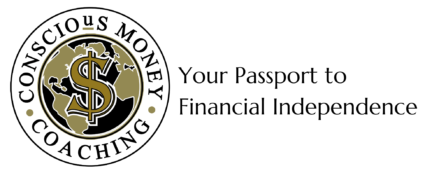
I hear it all the time: “I wish I could go there, but I can’t afford it”. A large reason why many North Americans can’t afford it: Debt. I’m not talking about mortgage debt, I’m talking about the one with the big teeth, the scary one, the one we call consumer debt.
As a society, we’ve normalized consumer debt. We haven’t done any favours for people who have a hard time standing up to societal pressures. Take a look around, many people are getting cars on payments, frivolous purchases on credit cards or even taking second mortgages out on their homes in the form of a Home Equity Line of Credit (HELOC) to buy all sorts of new toys.
Now if you want a HELOC or a car loan and you’ve budgeted for it, well done, no problem with me. If those are your priorities and those are what you value, then that’s great. But the main point here is, direct your money to what you value and to what you prioritize.
However, perhaps you’re at a point in your life and the priorities you had in your twenties, do not align with your priorities you now have in your thirties. Maybe you used to value having the latest and greatest car, but you didn’t value traveling. Or maybe you always needed the latest technology, but now you have a family. The bad thing, sometimes when your priorities change, the debt that was tied to the old you hasn’t changed.
In these instances, you need a plan to get this debt out of your life so then you can focus on your new priorities with a clear mind and a less stressful life. Here are five ways start attacking your debt:
1. Create a Spending Plan
A spending plan is essential for anyone. Just think of how hard you work for your money. Your goal should be to have a plan for where you want your money to go. I’m not talking about tracking every dollar, but coming up with some sort of spending plan is crucial when you’re in debt. Finding out how much margin is left at the end of each month is how you can fast track your debt payoff journey.
2. Increase Your Income
Look for opportunities to earn extra money, such as taking on a side job or freelance work, to accelerate your debt repayment. 2023 provides many opportunities to generate more income. You can walk dogs, drive for a ride sharing company or even get a work from home gig such as a personal assistant.
3. Reduce Expenses
After you go through your spending plan, this is often the next step. There are many expenses that you won’t be able to move the needle on, but plenty you will. The fixed expenses such as a mortgage, utilities and taxes are examples of some expenses that are difficult to change. But the variable expenses are the ones to focus on such as groceries, dining out and entertainment. Reviewing expenses is a must and is a fantastic way to free up money to pay off that debt.
4. Prioritize Debt Payments
Make a list of all your debts and prioritize them based on interest rates or balances. If you choose to focus on paying off high-interest debts first, while making minimum payments on the others, this is called the avalanche method. The snowball method involves paying off the smallest debts first to gain momentum. Mathematically the avalanche method may come out ahead but behaviourally, the snowball method is king. Choosing one method that works for you is essential.
5. Seek Help from a Money Coach
I definitely couldn’t leave this off of the list.I had to save the best for last. To put it simply: there are things coaches can do that reading a generic finance book won’t help you with. It could be the accountability factor you’re looking for that a coach can provide. Or maybe it’s the personalized advice after they have looked at your specific situation. Maybe it’s my biased view, but I will always say a coach is definitely one of the better options because a coach will wrap all the strategies into one customized plan tailored to your needs.
(Shameless plug here for my coaching services, link to free call: https://www.calendly.com/mjgallaway/free-call)
Conclusion
Even if travel isn’t your end goal, these are still five fantastic tips aimed at creating more margin at the end of the month to get that new found money working toward a specific goal. Staying committed and motivated is very important, because when it comes to your hard earned money, if you don’t have a plan for every dollar you make, someone else will.
